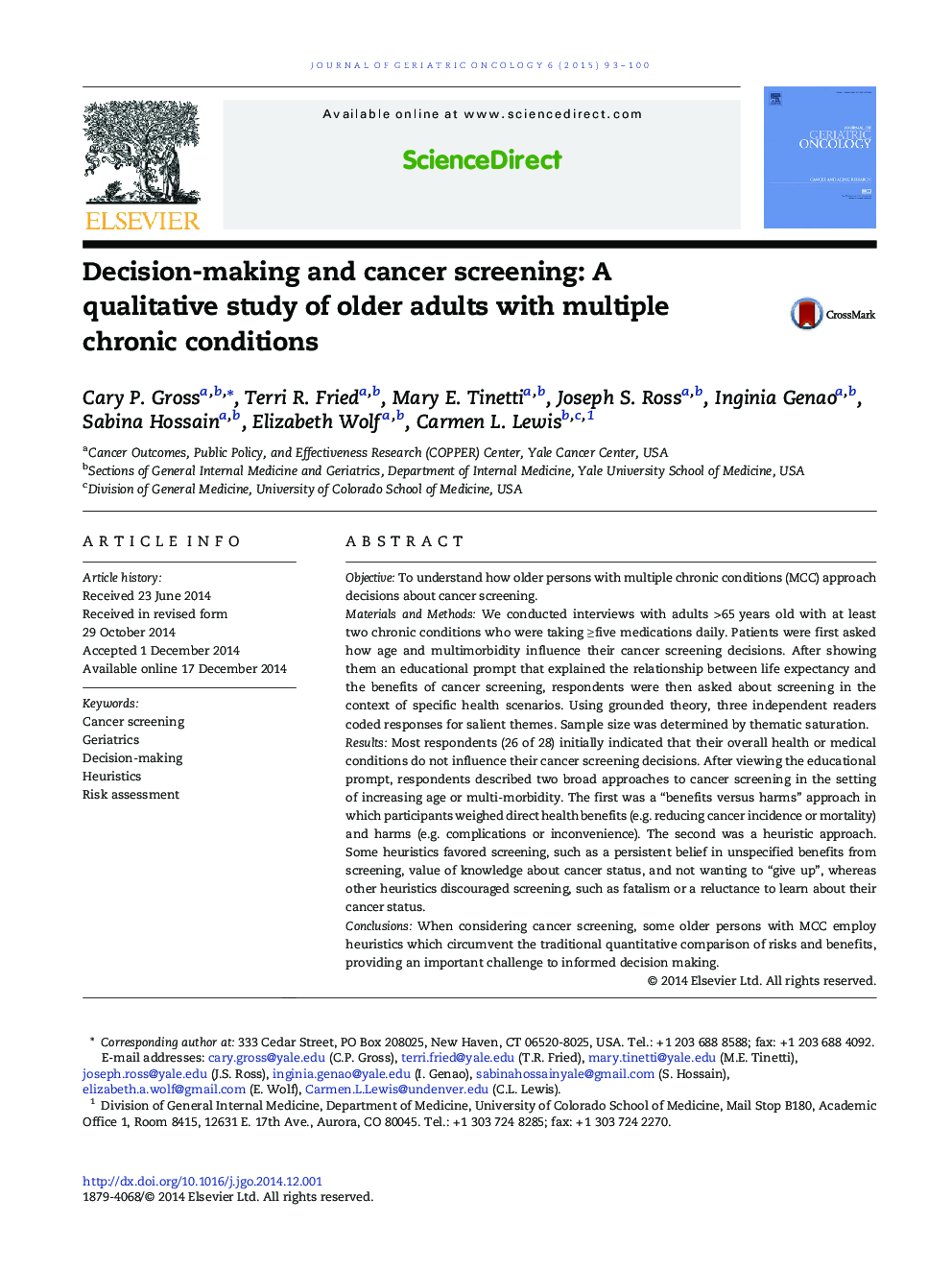| Article ID | Journal | Published Year | Pages | File Type |
|---|---|---|---|---|
| 1912483 | Journal of Geriatric Oncology | 2015 | 8 Pages |
ObjectiveTo understand how older persons with multiple chronic conditions (MCC) approach decisions about cancer screening.Materials and MethodsWe conducted interviews with adults > 65 years old with at least two chronic conditions who were taking ≥ five medications daily. Patients were first asked how age and multimorbidity influence their cancer screening decisions. After showing them an educational prompt that explained the relationship between life expectancy and the benefits of cancer screening, respondents were then asked about screening in the context of specific health scenarios. Using grounded theory, three independent readers coded responses for salient themes. Sample size was determined by thematic saturation.ResultsMost respondents (26 of 28) initially indicated that their overall health or medical conditions do not influence their cancer screening decisions. After viewing the educational prompt, respondents described two broad approaches to cancer screening in the setting of increasing age or multi-morbidity. The first was a “benefits versus harms” approach in which participants weighed direct health benefits (e.g. reducing cancer incidence or mortality) and harms (e.g. complications or inconvenience). The second was a heuristic approach. Some heuristics favored screening, such as a persistent belief in unspecified benefits from screening, value of knowledge about cancer status, and not wanting to “give up”, whereas other heuristics discouraged screening, such as fatalism or a reluctance to learn about their cancer status.ConclusionsWhen considering cancer screening, some older persons with MCC employ heuristics which circumvent the traditional quantitative comparison of risks and benefits, providing an important challenge to informed decision making.
